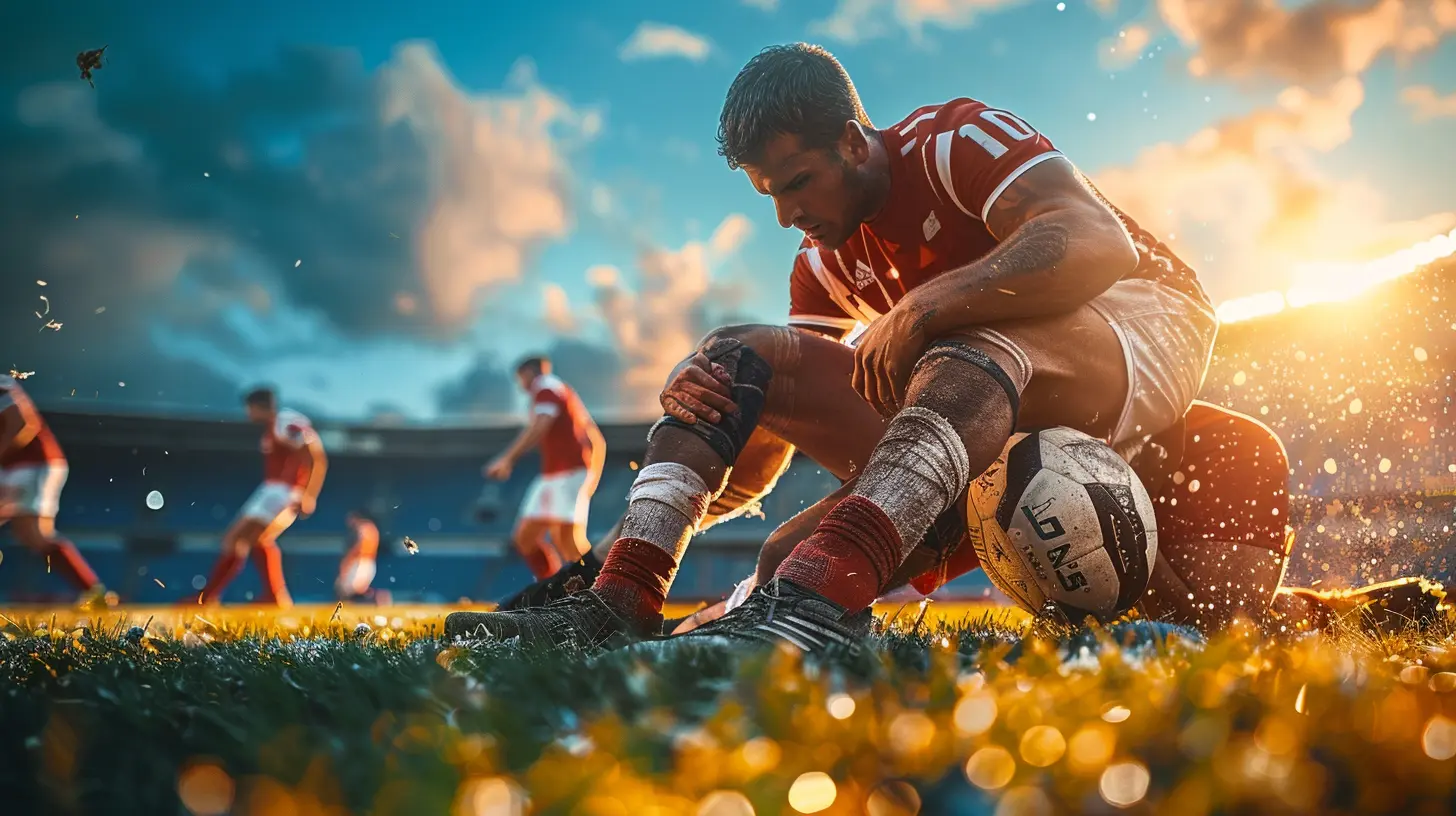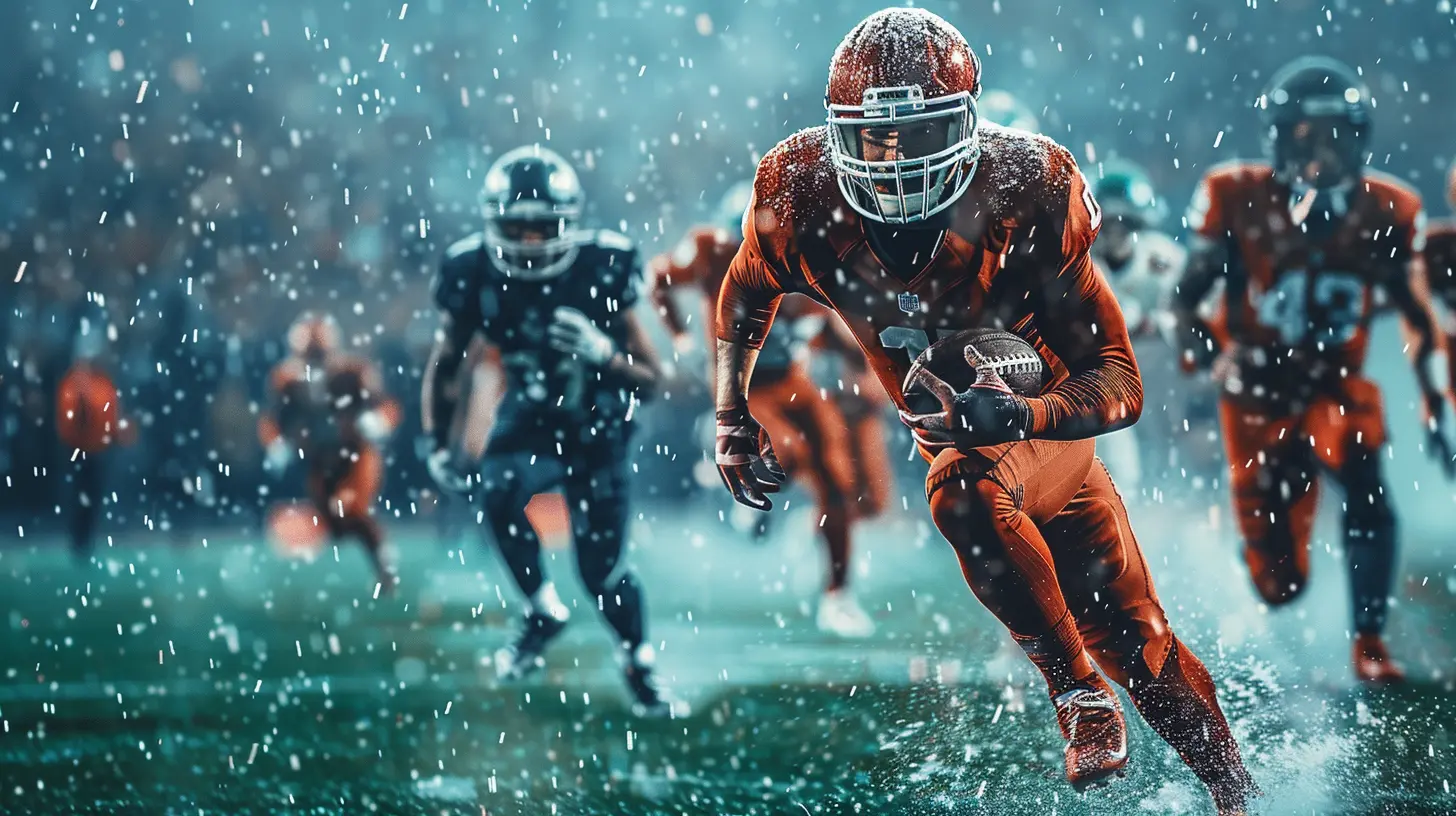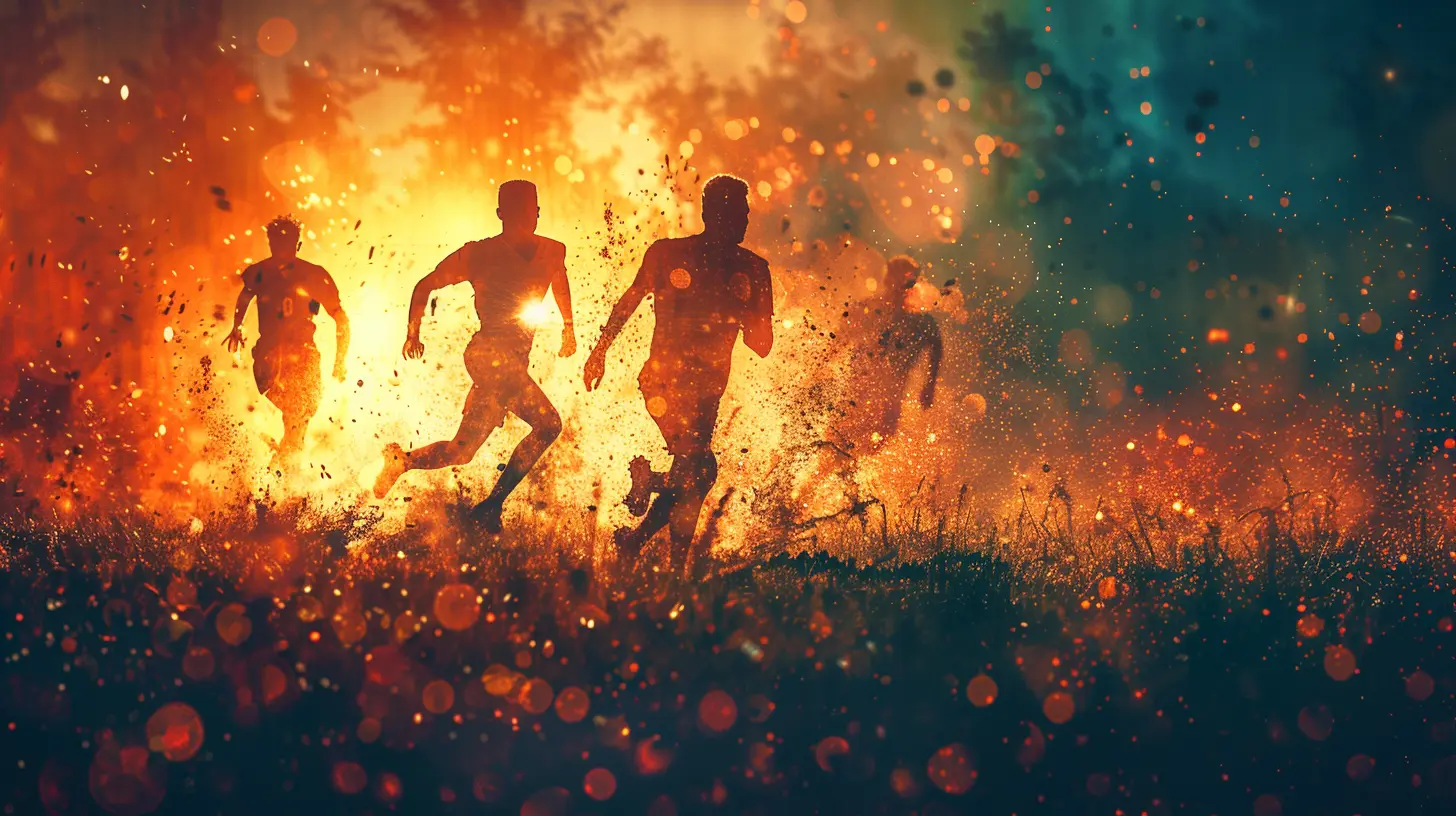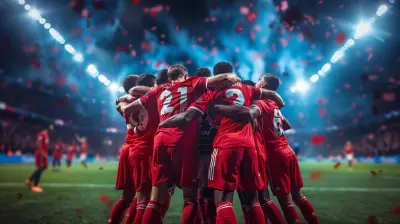Injuries and Comebacks: Supporting Teammates Through Tough Times
27 September 2025
In the world of sports, injuries are inevitable. They’re the uninvited guests that show up at the worst possible moments, disrupting seasons, careers, and, most importantly, the mental and physical well-being of athletes. Whether it's a torn ligament, a broken bone, or a concussion—injuries are a harsh reality. But what happens after the initial shock? How do athletes recover, and just as importantly, how do teammates play a role in that recovery process?
In this article, we’ll dive into the mental and physical battles athletes face when they’re sidelined, the importance of having a strong support system, and what teammates can do to help their injured comrades make a comeback.
The Emotional Roller Coaster of Injury
It’s easy to assume that the worst part of an injury is the physical pain. And while that’s certainly a huge part of it, the emotional and mental toll can be just as debilitating. Athletes are wired to push their bodies to the limit. They thrive on competition, adrenaline, and the camaraderie that comes with being part of a team. Take that away, and it’s like pulling the rug out from under them.The Stages of Emotional Recovery
Athletes, much like anyone who suffers a setback, experience a range of emotions when they’re injured:1. Denial – At first, it’s hard to accept the injury. “It’s not that bad,” they’ll say, despite the doctor’s orders.
2. Frustration – Once reality sets in, frustration often follows. They’ll watch from the sidelines, yearning to be out there on the field or court. Every minute feels like an eternity.
3. Depression – This can be the darkest phase. Athletes may start to question their identity. Without their sport, who are they? This is when isolation can become a major hurdle.
4. Acceptance – Eventually, they’ll come to terms with the injury. The rehab process begins, and the focus shifts to recovery, but that doesn’t mean the road gets any easier.
Supporting a teammate through these stages can make a world of difference. A simple text, a visit, or even just sitting with them in silence can provide comfort during a time when they might feel completely lost.
The Role of Teammates in Recovery
Injuries are isolating. While injured athletes are busy attending therapy sessions, doctor’s appointments, and sitting out practices, the rest of the team moves on. It’s not intentional, but it can feel like the injured player has been left behind. This is where teammates come in. They can act as the glue that keeps their sidelined friend connected to the team.Stay Available and Engaged
When a teammate gets injured, the worst thing you can do is ignore them or let them feel like they’re no longer part of the group. It’s important to keep them in the loop. Whether it’s sending game-day updates, inviting them to team dinners, or just hanging out with them outside of practice, these small gestures can make a huge difference.Think about it this way: just because they can’t physically play doesn’t mean they’re any less a part of the team. Keeping them engaged helps them feel like they’re still contributing, even if it’s not in the usual way.
Offer Emotional Support
Remember, it’s not just about the physical recovery. Emotional support is key. Injured athletes often feel vulnerable, frustrated, and even embarrassed. It’s normal for them to go through mood swings, and that’s okay. As a teammate, your job isn’t to fix those feelings—it’s to be there through them.Sometimes, all it takes is a simple, “Hey, how are you holding up?” to remind them that they’re not alone. You don’t need to offer solutions; just being present is enough. Listen to their concerns, and if they’re open to it, share your own experiences. If you’ve been through an injury yourself, it can be incredibly reassuring for them to hear that you’ve been where they are—and that they’ll make it through.
The Physical Road to Recovery
Recovering from an injury is a long, grueling process. Depending on the severity, it can take weeks, months, or even years to get back to peak performance. And the road is often filled with setbacks, which can be incredibly discouraging.Rehabilitation and Persistence
Rehab is no walk in the park. It’s an intense, often monotonous process that requires a lot of patience and determination. Teammates can help by encouraging the injured player to stick with their rehab, even on the tough days. This is where motivation comes into play. Celebrate the small victories, like increased range of motion or the first day back on the treadmill. These milestones may seem insignificant compared to playing in a game, but they’re huge steps in the recovery process.Encourage your teammate to be patient with themselves. Recovery isn’t linear, and setbacks are normal. What’s important is that they keep moving forward, even if it feels like two steps forward, one step back.
Helping With the Transition Back to the Game
Once the injured athlete is cleared to play, the challenge isn’t over. In fact, returning to the game can be one of the most difficult parts of recovery. There’s often a fear of re-injury, a lack of confidence, and, at times, a sense that they’re not the same player they were before the injury.This is where teammates can play a critical role. Boost their confidence by reminding them of their strengths. Encourage them to take it one step at a time—whether it’s easing back into practice or taking it slow during their first few games. Their body may have healed, but mentally, it might take a bit longer to feel like themselves again.
It’s a lot like trying to ride a bike after a crash. You know how to do it, but there’s that lingering fear of falling again. Teammates can act as the training wheels, keeping them steady until they’re ready to fly solo again.
The Power of Team Culture
One of the most effective ways to support an injured teammate is by fostering a strong team culture. When a team has a culture of inclusivity, support, and camaraderie, no player feels left out—injured or not.Emphasizing “We” Over “Me”
In team sports, it’s common to focus on individual performances—someone scores the most points, someone else makes the game-winning save. But at the end of the day, no one wins alone. It’s important to emphasize a “we” over “me” mentality, especially when someone gets hurt.When a player goes down, it’s not just their problem—it’s the team’s. Everyone plays a role in their recovery, whether it’s physical encouragement, emotional support, or simply keeping the team spirit alive. This sense of unity can significantly speed up the recovery process, both mentally and emotionally.
Keeping the Injured Player Involved
One of the worst feelings an injured player can experience is the sense of being replaced. When they’re not playing, it’s easy to feel like the team has moved on without them. But this doesn’t have to be the case.Coaches and teammates can keep the injured player involved by assigning them different roles. Maybe they help with strategy, offer advice to younger players, or even assist in running practices. This gives them a sense of purpose and keeps them mentally engaged with the sport, even if they’re not physically participating.
Comebacks: The Sweet Taste of Victory
There’s nothing quite like the moment an athlete makes their comeback. After months of rehab, mental struggles, and time away from the game, they finally step back onto the field or court. But here’s the thing: comebacks aren’t just about the athlete. They’re about the entire team.When a player returns from injury, it’s a victory for everyone. Teammates who supported them, coaches who believed in them, and even fans who cheered them on—it’s a collective win. And that’s what makes sports so special. It’s not just about individual triumphs; it’s about what we can achieve together, especially through the tough times.
So, the next time a teammate gets injured, remember that the road to recovery isn’t a solo journey. It’s a team effort. Your support, encouragement, and presence can make all the difference in helping them come back stronger than ever.
all images in this post were generated using AI tools
Category:
Team SportsAuthor:

Preston Wilkins
Discussion
rate this article
1 comments
Lyla Roth
What a heartfelt exploration of resilience and camaraderie! It's inspiring to see how teammates rally together during challenging times, turning setbacks into comebacks. Your insights on supporting one another truly highlight the spirit of sportsmanship. Keep up the great work!
October 1, 2025 at 3:52 AM

Preston Wilkins
Thank you for your kind words! I'm glad the article resonated with you and highlighted the importance of support and teamwork in overcoming challenges.


